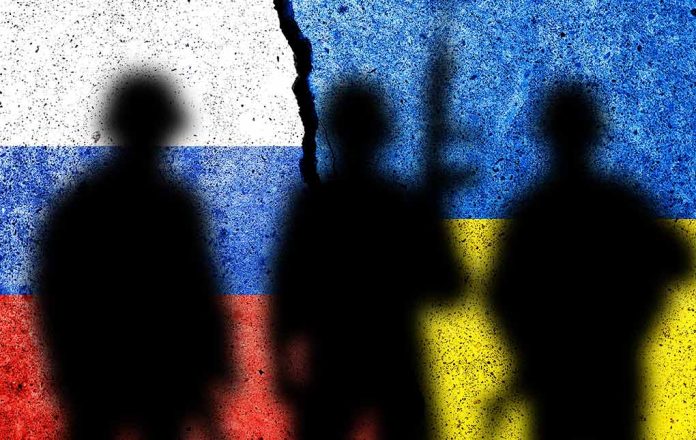
Allegations of chemical weapon use between Russia and Ukraine have heightened international concerns, with implications stretching beyond regional borders.
At a Glance
- Allegations involve chemical weapons and riot control agents.
- Chloropicrin use highlights chemical warfare risks.
- International investigations challenge Chemical Weapons Convention integrity.
- Global responses may include sanctions and diplomatic actions.
Chemical Weapon Allegations in Conflict
Accusations of chemical weapon usage against Russian forces by Ukraine raise serious concerns. Claims suggest Ukraine, potentially with NATO’s assistance, plans to use chemicals, including chloropicrin and riot control agents. Chloropicrin, classified as a Schedule 3 chemical under the Chemical Weapons Convention, can be produced for certain non-prohibited purposes. However, its use in warfare challenges international protocols. Riot control agents are legally used for specific purposes but are prohibited in warfare.
This situation opens a debate about the credibility of the Chemical Weapons Convention, necessitating a transparent, international investigation to uphold treaty integrity.
Past instances have shown the OPCW capable of providing necessary technical assistance, yet investigations into the alleged usage in Ukraine face a significant challenge. The absence of recent use of inspection mechanisms, like the OPCW, since 1997 means monitoring current allegations requires robust international cooperation.
🚨 SANCTIONED: Russian troops for their barbaric use of chemical weapons in Ukraine.
Russian forces have openly admitted to using riot control agents on the battlefield, with multiple reports of the toxic choking agent chloropicrin – first deployed in World War 1. pic.twitter.com/Ey3vf5Dea2— Foreign, Commonwealth & Development Office (@FCDOGovUK) October 8, 2024
International Investigations and Responses
The OPCW’s role is crucial, with its Investigation and Identification Team entrusted to continue investigations in cases like Syria. The UN’s prior mechanisms, such as the Fact-Finding Mission and Joint Investigative Mechanism, have proven effective. However, Russia has rejected extensions of such mandates recently. These precedents could guide investigations into the Ukraine situation. Technical assistance from the OPCW, similar to past cases, reinforces their role as an objective examiner.
With evidence of chemical weapons usage in previous conflicts, the global community must address potential dangers. Speculation about Russia’s chemical stockpile, including possible agents like chlorine or ammonia, suggests the likelihood of false flag operations. The international community is expected to respond with diplomatic expulsions and economic sanctions, as military interventions pose significant escalation risks.
UK sanctions Russian troops over chemical weapons use in Ukraine https://t.co/pLqsBZMKEO
— BBC Politics (@BBCPolitics) October 9, 2024
Upholding International Norms and Conclusions
The allegations against Russia underscore the importance of international norms against chemical warfare. Upholding the Chemical Weapons Convention requires concerted global efforts. While the OPCW continues investigations in Syria, leveraging its expertise for Ukraine could ensure transparency. International support for these investigations is vital to deter future chemical weapon use.
These developments remind nations of the enduring threats posed by chemical weapons. The objectives of psychological intimidation, rather than military superiority, underscore the malign use of such weapons. While challenges in assessing stockpiles persist, evidence of past usage necessitates vigilant, coordinated global responses to uphold international security and safety.
Sources:
- Imposing New Measures on Russia for its Full-Scale War and Use of Chemical Weapons Against Ukraine
- The alleged use of chemical weapons in Ukraine: How the international community can investigate
- The risk of Russian chemical weapons use







